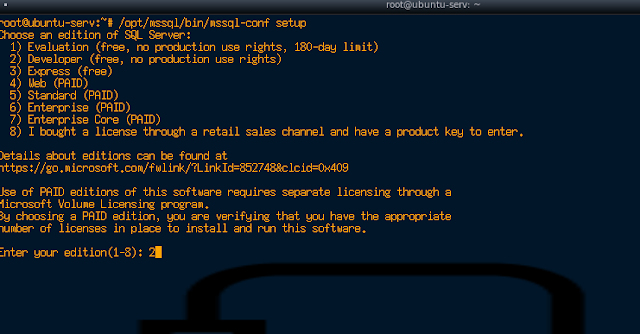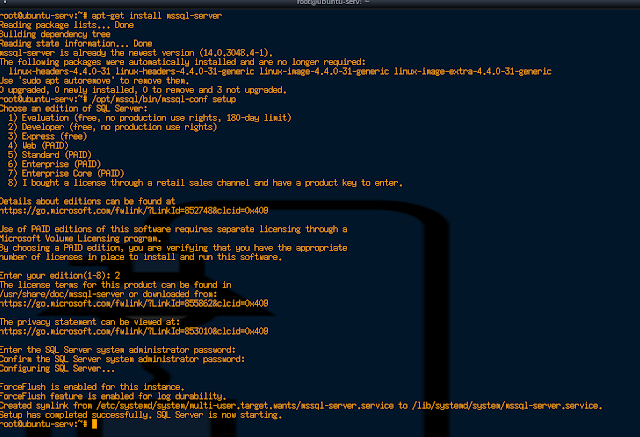1. Import the public repo GPG Keys:
wget -qO- https://packages.microsoft.com/keys/microsoft.asc | sudo apt-key add -

2. Register MS SQL Server Ubuntu repo
add-apt-repository "$(wget -qO- https://packages.microsoft.com/config/ubuntu/16.04/mssql-server-2017.list)"

3. Install MSSQL Server 2017
when running apt-get update you will run into the following error
I was able to resolve this error by running the dpkg --configure -a command, Once dpkg completed i was able to run both apt-get update & apt-get install mssql-server
4. Setting up the MSSQL Sever 2017 Configuration
/opt/mssql/bin/mssql-conf setup


5. Checking the Status of the mssql-server running
systemctl status mssql-server
Now that I have the Database up and running i found i still needed to install the SQL Server command line tools. The command-line tools will allow you to connect to the database and run SQL statements against the database
6. Import the public repo GPG keys
curl https://packages.microsoft.com/keys/microsoft.asc | sudo apt-key add -
7. Register the Microsoft Ubuntu repo
curl https://packages.microsoft.com/config/ubuntu/16.04/prod.list
| sudo tee /etc/apt/sources.list.d/msprod.list
8. Update the sources list and run the install.
apt-get update
apt-get install mssql-tools unixodbc-dev
9. Connect to the local database
/opt/mssql-tools/bin/sqlcmd -S localhost -U SA -P ''






No comments:
Post a Comment